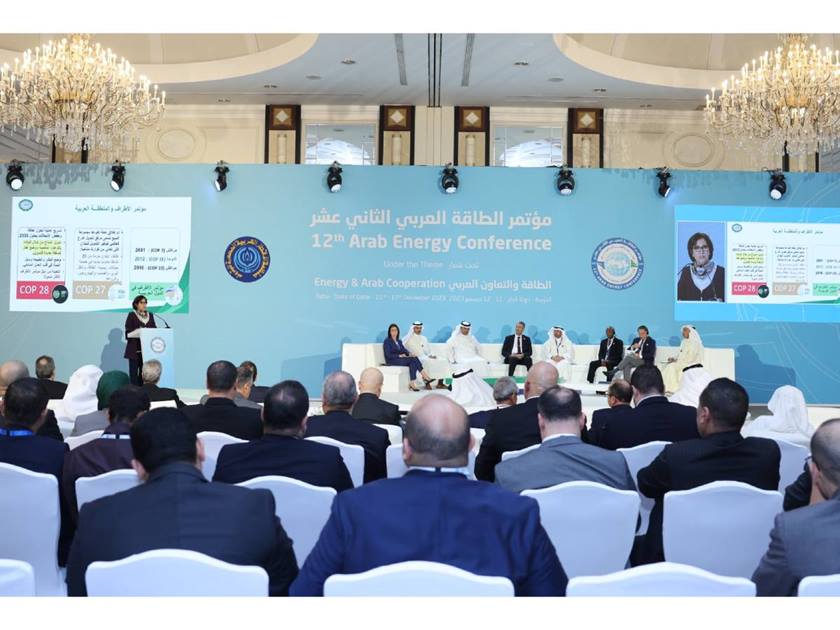Arab Energy Conference: Ministerial Session Discusses Transition to Clean Energy While Preserving Oil Wealth

Doha, December 12 (QNA) - Participants in the second ministerial session on energy, environment and sustainable development, held within the activities of the 12th Arab Energy Conference, which concludes Tuesday in Doha, detailed the steps taken by a number of Arab countries in the field of energy transition and stressed the importance of preserving fossil energy as a strategic and major commodity for the income of many Arab countries.
HE Minister of Oil and Minister of State for Economic and Investment Affairs in the State of Kuwait, Dr. Saad Hamad Nasser Al Barrak, expressed his surprise at the insistence on depriving many peoples and countries, notably developing countries, of a basic source of energy, which is a major source for the economy. He expressed his rejection of the Western demands to stop investing in oil and gas, as it contradicts the UN's 17 Sustainable Development Goals.
The Kuwaiti Minister pointed to the steps taken by the countries of the region in the energy transition. Regardless of their possession of oil wealth, clean energy was not ignored, and there are four Arab countries that have significant experience in the energy transition.
Al Barrak noted that Arab countries increased their capabilities in the field of renewable energy by 57 percent between 2022 and 2023, and said that they are serious about transitioning to alternative and renewable energy while continuing to invest in oil and gas.
He explained that abandoning fossil fuels will have a negative impact on the global economy, and will create problems in the energy sector, stability of development, and provision of what is needed for developing countries. Getting rid of fossil fuels will also in turn affect sustainable development.
The Kuwaiti Minister affirmed Kuwait's belief in working to reduce emissions and preserve the environment, and the necessity of addressing the issue of emissions through developing technical solutions and international oversight.
HE Minister of Oil in the Republic of Iraq, Hayyan Abdul Ghani Al Swad, drew attention to the importance of supporting renewable and clean energy sources and projects, as well as the necessity of preserving fossil energy as a strategic commodity for producing countries.
HE Minister of Oil and Environment, Special Envoy for Climate Affairs of the Kingdom of Bahrain, Dr. Mohamed bin Mubarak Bin Daina, asked to separate oil production from the topic of climate change, as countries need to worry about their future and achieve development and prosperity for the people.
He also stressed the need to think about the common Arab market for electricity and the energy transition, not in service of the Framework Convention on Climate Change (FCCC), but rather for the benefit of the people in the region.
Bahrain's Minister of Oil and Environment pointed out that his country is aiming to reduce carbon dioxide emission levels by 35 percent in the coming period. (QNA)





